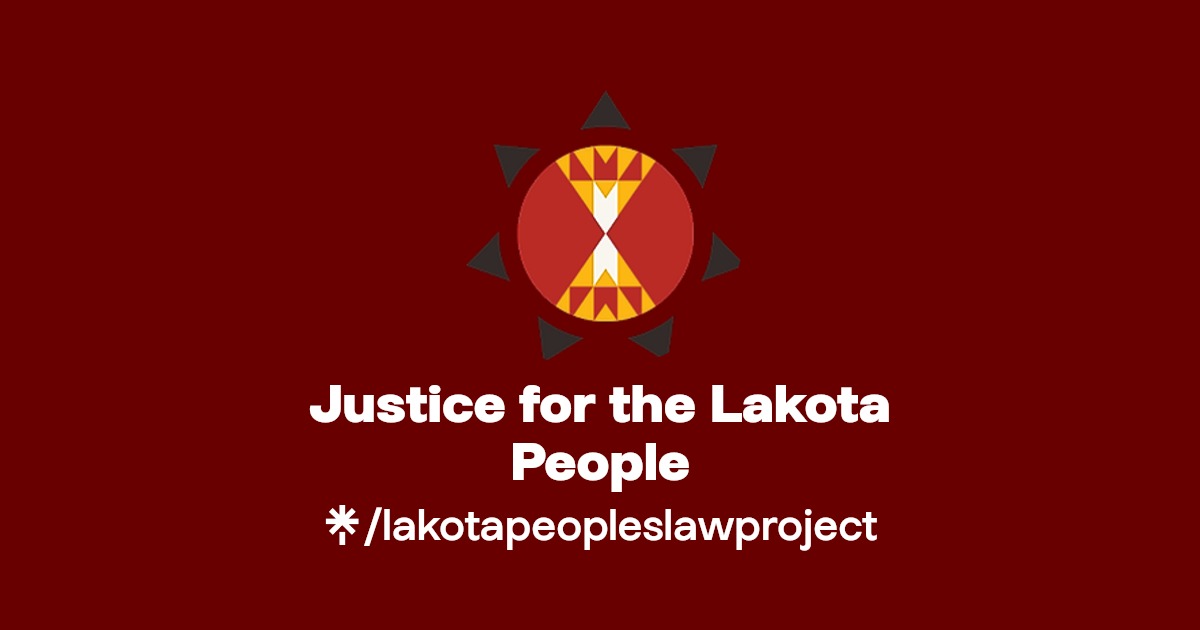Throughout history, the quest for justice has been a perennial theme that resonates deeply within the teachings of the Bahá’í Faith. The Bahá’í principles advocate unity, equity, and the elimination of prejudice, offering a robust framework for understanding contemporary struggles for justice, particularly among marginalized communities, such as the Lakota people. This article elucidates the intersection of Bahá’í teachings with the contemporary plight of the Lakota, exploring the concept of justice from various angles and presenting a multifaceted approach to addressing their grievances.
The Lakota people, a Native American tribe primarily residing in the United States, have endured protracted historical injustices that stem from colonization and systemic oppression. The Treaty of Fort Laramie in 1868, which established the Great Sioux Reservation, was subsequently abrogated, leading to further displacement and disenfranchisement. Today, the Lakota continue to advocate for their rights, preserving their culture and striving against the socio-economic challenges imposed by both historical and ongoing injustices.
The Bahá’í Faith posits that justice is a fundamental divine attribute, advocating for accountability and fairness as essential components in both individual and collective life. The principles of justice not only encompass moral rectitude but also invite a broader understanding of social dynamics influenced by power and privilege. In applying Bahá’í teachings to the contemporary struggles of the Lakota, one discovers profound insights that facilitate a pathway toward reconciliation and restorative justice.
One primary aspect of Bahá’í teachings pertinent to the Lakota is the concept of unity in diversity. The Bahá’í Faith promotes the notion that while cultural distinctiveness should be celebrated, it must not serve as a barrier to the collective progress of humanity. The Lakota, as a distinct cultural group, offer invaluable contributions to the tapestry of human civilization. However, their marginalization can often eclipse their rich heritage. The Bahá’í perspective encourages an inclusive dialogue that fosters understanding and mutual respect among diverse peoples.
Justice, according to Bahá’í teachings, also emphasizes the importance of recognizing the rights of others. The Lakota’s pursuit of justice is deeply intertwined with their inherent rights as Indigenous peoples. This encompasses not only land rights and self-determination but also the preservation of language, culture, and spirituality. The Bahá’í principle of the oneness of humanity calls for recognition of the historical injustices faced by Indigenous populations, urging contemporary societies to engage earnestly with these issues.
Furthermore, Bahá’í teachings elucidate the necessity of collective action to promote social good. The Lakota people have organized numerous efforts to address the socio-economic disparities prevalent in their communities, such as educational initiatives, health programs, and cultural revitalization projects. The Bahá’í Faith encourages similar collective endeavors aimed at redressing systemic inequalities and empowering marginalized groups. Collaborative initiatives can serve as mechanisms through which both Bahá’ís and the Lakota work together towards shared goals of equity and social progress.
A critical examination of justice in the context of the Lakota must also involve the acknowledgment of historical traumas and their enduring repercussions. The Bahá’í approach to healing emphasizes the need for both acknowledgment of past wrongs and a commitment to building a more equitable future. Understanding the trauma experienced by the Lakota—rooted in the loss of land, culture, and autonomy—is imperative for fostering genuine reconciliation. This healing process involves not only the Lakota people themselves but also the broader society, which must confront its own historical complicity in the injustices faced by Indigenous populations.
The role of education emerges as another pivotal theme in the exploration of justice. Bahá’í teachings underscore the transformative power of education, which serves as a fundamental right for all individuals. In light of the socio-economic challenges faced by the Lakota, educational opportunities can facilitate empowerment and agency within the community. Bilingual education programs, culturally relevant curricula, and the promotion of Indigenous knowledge systems represent avenues through which the Lakota can reclaim their narrative and uplift future generations.
The Lakota struggle for justice also intersects with environmental justice, accentuating the urgency of recognizing the land’s sacredness—a principle enshrined within both Indigenous and Bahá’í cosmology. The ongoing battles against resource extraction industries and environmental degradation underscore the need for an ethical stewardship of the earth. The Bahá’í teachings advocate for sustainable practices and the reverence of the environment as a collective heritage, encapsulating both spiritual and material considerations vital for justice.
In conclusion, the intersection of Bahá’í principles with the contemporary plight of the Lakota people underscores a broader, universal pursuit of justice. The Bahá’í teachings provide a robust framework for understanding the multifaceted dimensions of justice, extending beyond mere retribution to a holistic vision of equity, inclusivity, and collective betterment. The pathway toward justice for the Lakota and, indeed, for all oppressed communities requires sincere engagement, mutual recognition of rights, and unwavering commitment to the principles of unity and equity that the Bahá’í Faith espouses. The process is not merely the responsibility of the marginalized, but a collective societal obligation—rooted in compassion, responsibility, and the shared aspiration for a just and harmonious world.
